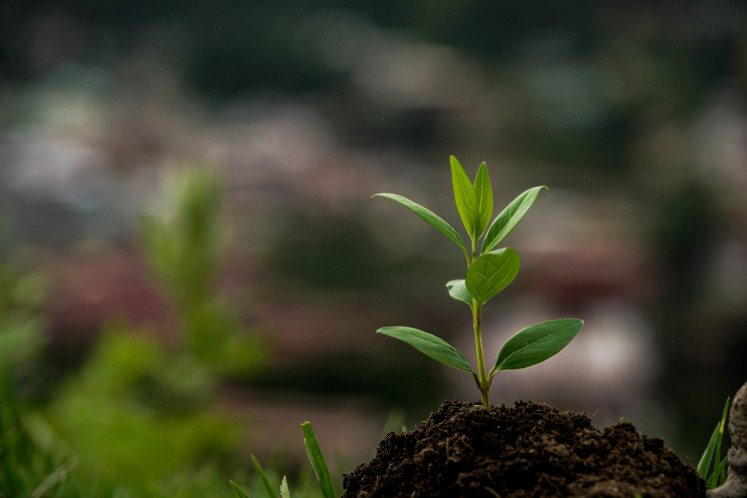Popular Reads
Top Results
Can't find what you're looking for?
View all search resultsPopular Reads
Top Results
Can't find what you're looking for?
View all search resultsBeware of microplastics in rain
Forget traffic snarls, flooding and catching a chill: It turns out that at least for the past three years, if not longer, rainy season brings with it the risk that Jakartans could inhale microplastics that can harm our health for the long term.
Change text size
Gift Premium Articles
to Anyone
T
he rainy season has arrived in Jakarta but this year, in addition to the usual risks it brings, people might need to cover their mouths and noses to prevent them from inhaling the microplastics contaminating the water falling from the sky.
A 2022 study by researchers from the National Research and Innovation Agency (BRIN) detected microplastics in rainwater samples collected across Jakarta. Larger plastic materials and products degrade into the small plastic particles, which are so light they can take wing, floating in the air above the city until they are carried by rain, falling to the ground and into waterways.
Inhaling or swallowing raindrops can lead to microplastics entering the body, but the particulate pollutants are also believed to contaminate the air we breathe during the dry season. Regardless of the weather, it may be inevitable that microplastics enter the human body and are later deposited in our bloodstream or organs.
Microplastics in rainwater is just another tip of the iceberg of plastic pollution, which stems from the unmindful overconsumption and careless disposal of products made from the polymer. The authors of the 2022 study also believe the situation today could be worse than when they completed their research due to our increasing use of plastics and plastic products in our everyday lives.
We might have done a good job by inventing plastic, which can be used in a plethora of applications thanks to its flexibility and durability. What we are doing poorly is in managing their disposal, contributing to the piles of plastic waste that end up polluting the environment that is necessary to our very survival.
According to the Environment Ministry, around 8 million tonnes of plastic waste generated each year go untreated, end up in landfills and degrade into smaller particles that later contaminate the air and water.
Worse, areas with inadequate trash collection systems burn plastic waste, releasing a noxious cocktail of toxic chemicals that can lead to long-term health problems, affecting our immune system and hormones and causing both reproductive and developmental issues.



















